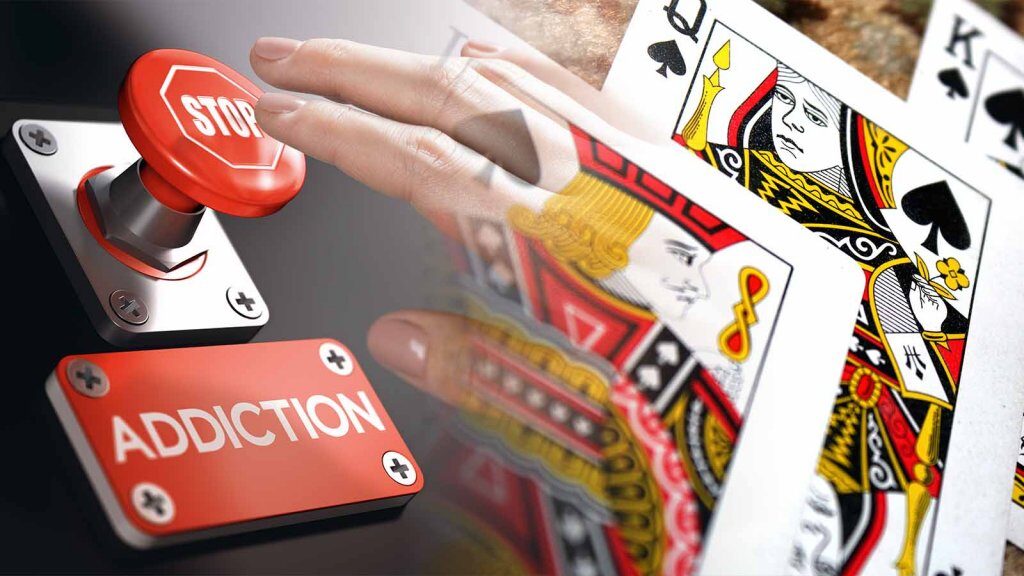
Gambling, when approached responsibly, can be an enjoyable pastime. However, a fundamental rule to adhere to is never to gamble with money you cannot afford to lose. This principle is the cornerstone of wise and responsible gambling.
Before you start gambling, establish clear boundaries. Decide on a strict budget and stick to it—never gamble with money you can’t afford to lose. Similarly, set a time limit to avoid getting caught up in the excitement for too long. The longer you play, the higher the chances of losing.
Gambling should be viewed as a form of entertainment, much like going to a movie or dining out. Expect losses as part of the experience, and if you happen to win, consider it a bonus rather than a source of income.
Trying to win back lost money can lead to a dangerous cycle of increasing bets and deeper losses. Accept that losses are part of gambling, and don’t let frustration push you into spending beyond your limits.
Never borrow money to gamble or lend money to others for gambling—there’s no guarantee of getting it back. Don’t rely on gambling strategies that claim to guarantee wins; the house always has the advantage. Quitting while ahead is a wise approach, as luck can turn quickly.
Avoid gambling when feeling stressed, anxious, or upset, as emotional decisions can lead to reckless betting. Additionally, steer clear of gambling under the influence of alcohol or drugs, as impaired judgment increases the risk of losing control.
Knowledge is key—familiarize yourself with the games you play, their odds, and how the house maintains an edge. Being informed helps set realistic expectations and prevents impulsive betting.
By following these tips, you can keep gambling fun and controlled, reducing the risks of financial or emotional distress.
Responsible gambling extends to recognizing when help is required. If gambling starts negatively impacting your finances, relationships, or mental health, seeking assistance from support groups or professionals is a responsible and commendable action.
In conclusion, the essence of responsible gambling lies in financial prudence. By setting limits, understanding the risks, and exercising self-discipline, you can enjoy gambling as a form of entertainment without compromising your financial well-being. Remember, gambling is most enjoyable when it remains within the boundaries of what you can comfortably afford to lose.
Gambling is a leisure activity to have a nice pastime and to have fun. However, it is possible that this leisure activity turns into an addiction that causes several problems in a person’s life and there are signs that can be noticed when gambling is no longer a way of having fun.
The golden rule of gambling is never to play more than you can afford to lose. You are developing a gambling problem if you are:
Beginning to borrow money and sell things to gamble, spending most of your time gambling while you should be working or spending time with your friends and family, gambling to cover up your debts or previous losses, constantly thinking about gambling and having difficulty in controlling your gambling, lying and becoming secretive about your gambling and your losses, having arguments about money and your gambling with people close to you, gambling as a way of dealing with everyday problems , negative feelings or situations. In such cases, you should seriously look for ways to stop gambling or ask for professional help or apply to centers for treating problem gambling
Worried about your gambling? Click Here
Estimated reading time: 9 minutes Dinosaurs have always captured our imagination, and online slot developers… Read More
Estimated reading time: 1 minute Spin Palace Casino PA NJ 🇺🇸 Spin Palace Casino may… Read More
Estimated reading time: 7 minutes Think you need to bet big to win big? Think… Read More
Estimated reading time: 9 minutes Funniest Slot Machines in 2025: Slot Games That'll Make You… Read More
Estimated reading time: 10 minutes If you're a movie lover who enjoys spinning the reels,… Read More
Estimated reading time: 7 minutes Tired of long withdrawal times? You're not alone. In today’s… Read More